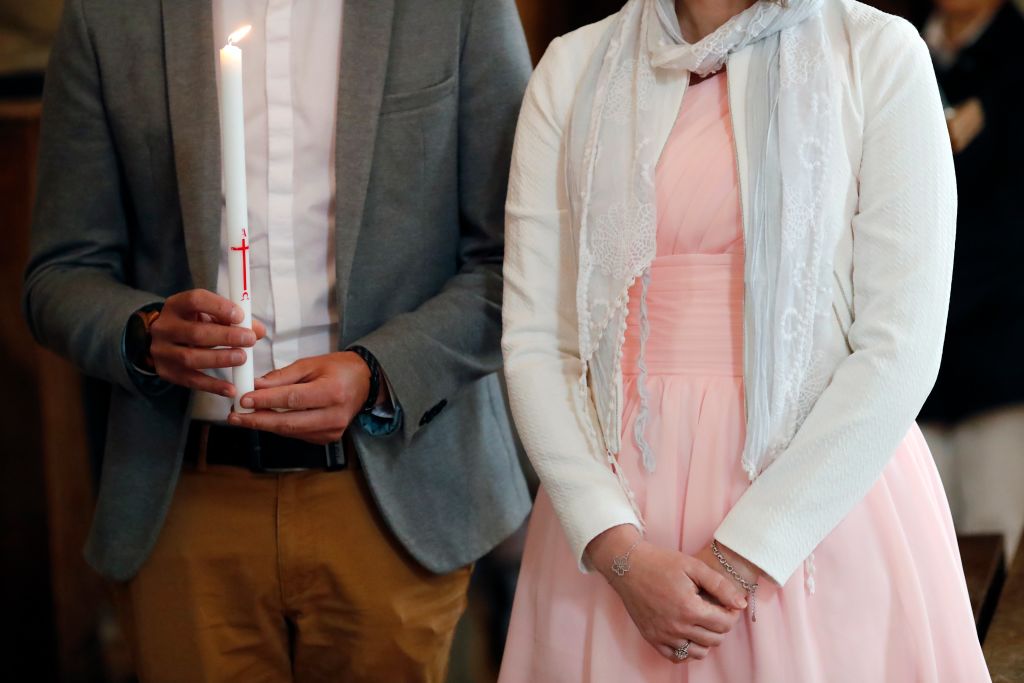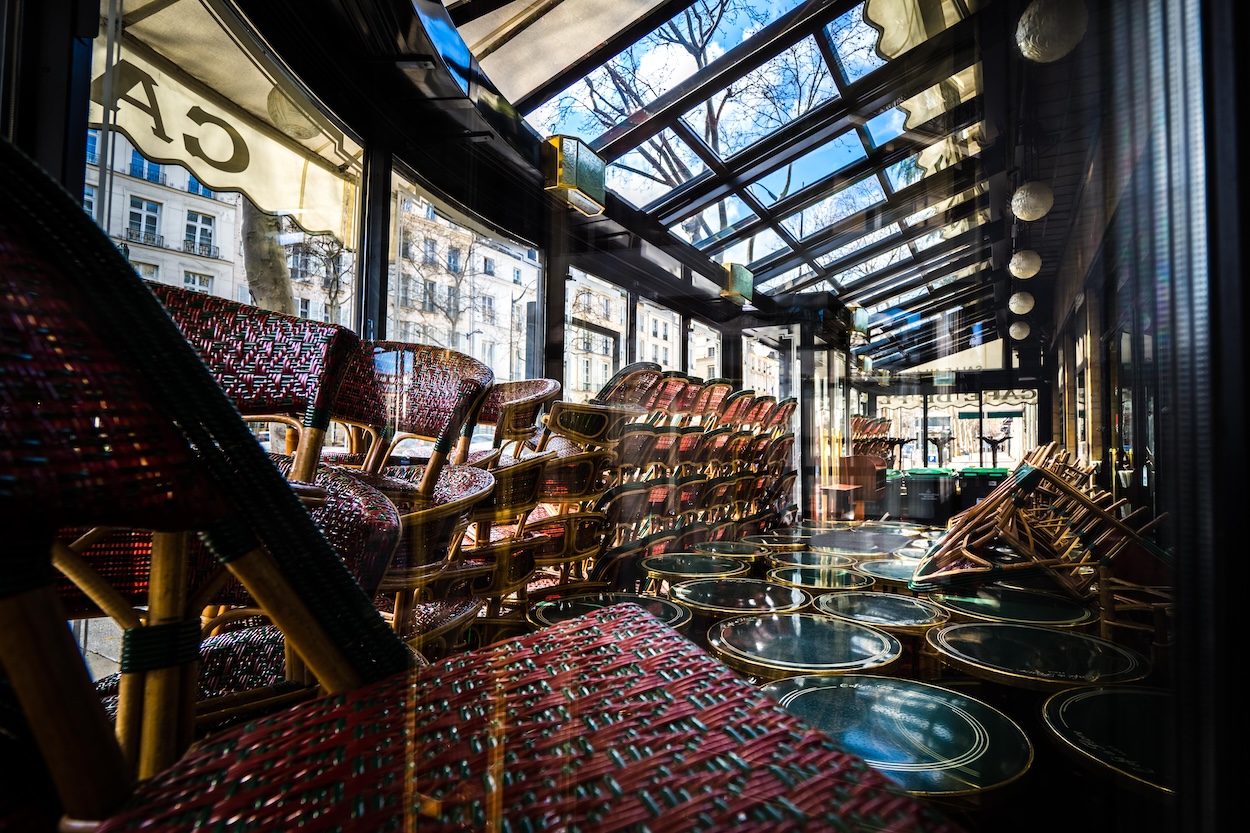One day last week we did a wine run up to Manosque in the foothills of the Alps, leaving early in the morning. Catriona drove, big Vernon squeezed into the back seat and made a nest for himself among two weeks’s recycling trash. Along the road up to Manosque the almond trees were in blossom, and in the gardens yellow forsythia and mimosa. But last year’s dead leaves still clung about the naked branches of the forest. Manosque it was because we’re massive fans of a local red called La Blaque.
But on the way we passed a Louis Latour wine outlet. Catriona likes their Viré-Clessé white so we stopped for a tasting. The first customers through the door at nine o’clock, we stood around a barrel table whirling chilled white wine around big thin glasses and emerged half an hour later into a brighter, funnier morning.
Vernon is a French-American whose American accent is indistinguishable from Jack Nicholson’s. He’s a cultured man and a big reader and chooses his reading according to his train of thought. Steeped in French, German and American idealism, he has lately discovered and fallen deeply in love with British empiricism, which has struck him with the force of a revelation. He arrived at British empiricism, I think, via Nietzsche’s contempt for it. At the time he was reading Nietzsche because he was excited by Nietzsche’s concept of ressentiment, one he found useful in his private investigation into the philosophical underpinnings of this nasty woke shit. With Vernon in the car, the conversation is likely to be wide-ranging, especially after an early-morning wine tasting.
When we got back in the car after the tasting he said to Catriona: ‘Oh my, ain’t you lookin’ purty this morning. Just like a purty li’l doll. Ain’t she just the purtiest little thang, JJ?’ I sincerely agreed that our driver was indeed looking wonderfully purty. And from this he initiated a discussion about Robert Graves and the controversy over Graves’s hastily written and sensationalized war memoir Goodbye to All That, which led in turn to a discussion about Siegfried Sassoon’s public condemnation of the Great War and the social effects of disillusion with one’s own civilization. I was able to contribute slightly to this discussion because I happened to be reading Siegfried Sassoon’s Memoirs of a Fox-Hunting Man; though the weight of my opinions about Sassoon or his book ought to be discounted, I warned Vernon and Catriona, on account of my not realizing until quite near the end that I was reading a novel.
Then Vernon spoke about another line of inquiry he’d been pursuing, founded on Freud’s late discursive essay Civilization and Its Discontents. He also spoke with amazement and scorn about a footnote, in which Freud claimed that women were psychologically different from men because they didn’t have that same sense of omnipotence that men felt when urinating on a campfire to put it out. Vernon found in this footnote conclusive evidence of Freud’s mental deterioration owing to his cocaine habit. ‘She cain’t piss on the fire but ain’t she just the purdiest little thang you ever did see?’ he concluded, referring again to our driver. At Manosque Vernon directed Catriona to the car park of a farm shop called Peasant Hues. Inside, energetic as laborers, we piled our trolleys with boxes of La Blaque 2019 rouge (bio). On the way back we sang every Eagles song we knew and we were home by lunchtime.
In the afternoon I drove an hour in the opposite direction, with a check in my pocket, on another sausage run. Being out and about on a wine run in the morning and a sausage run in the afternoon, with the almond blossom all out and a first AstraZeneca shot under my belt, felt wildly liberating. I was the designated driver for a group of shielding expats who loved sausages but not enough to risk exposure to the outside world. The rendezvous with the sausage lady was, as before, the car park of a line of motorway toll booths. I was there before she was and chatted with an expat also waiting for sausages. Jeremy was as English as they come but had lived, he said, in France for 20 years. Before that he had lived in Ethiopia. There were plenty around like him, he said, dismissing my surprise, who felt very English but had lived abroad most of their lives. Well, had he heard, I said, that the British government was restoring the right of people like him to vote in UK general elections? He hadn’t and was unexcited by the news. And so we stood on the curb in the sunshine waiting for sausages and chatting in this desultory fashion. She was very late, the sausage lady. Not that it mattered. I was just thrilled to bits by the sociable day I was having.
This article was originally published in The Spectator’s UK magazine. Subscribe to the US edition here.

























